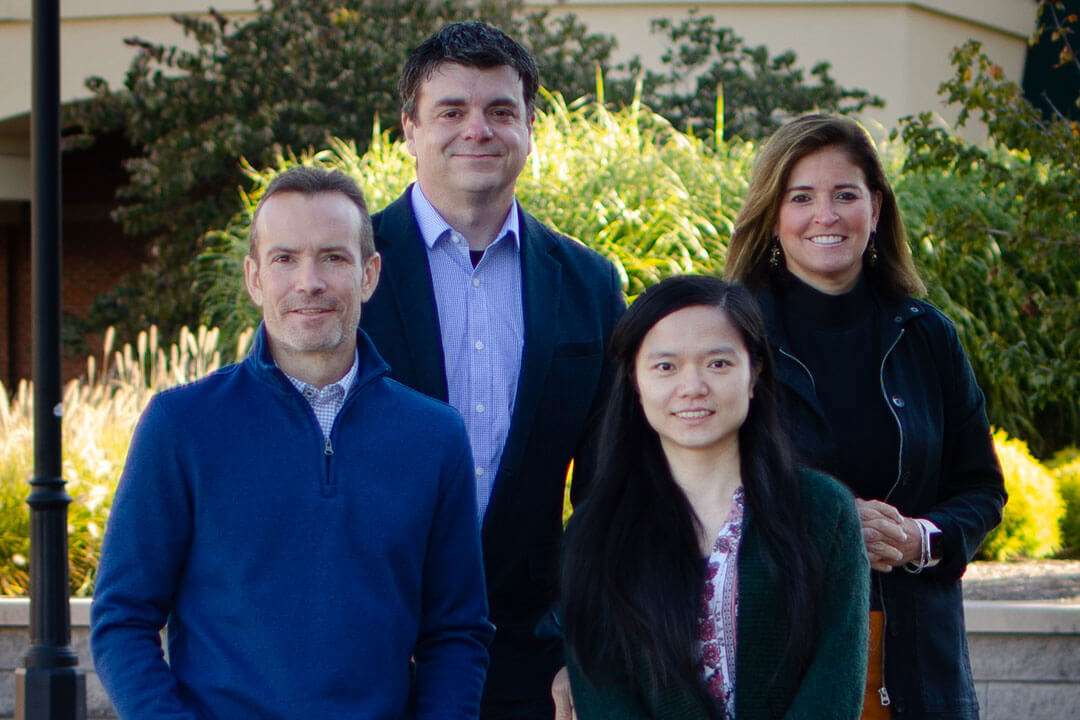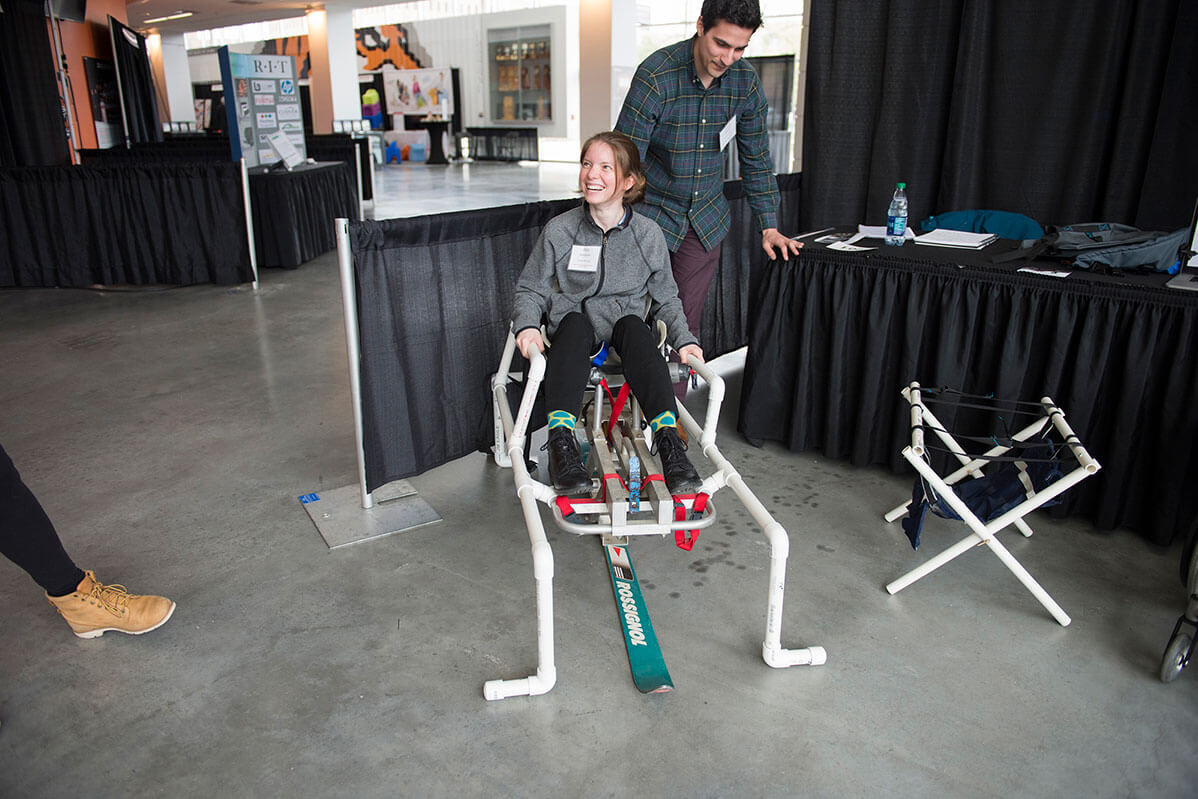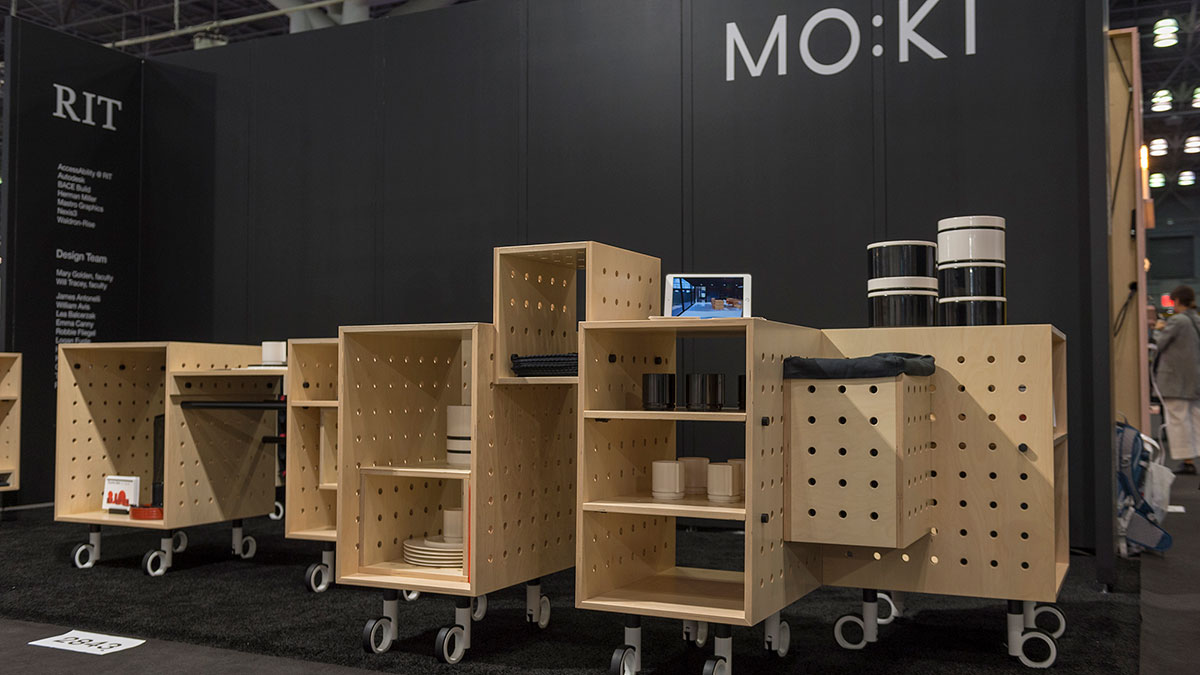Access: Healthcare Technology
Opportunities to work collaboratively in the healthcare technology arena are plentiful at RIT. Initiatives combining technology, art and design serve as catalysts for key research and the development of products that improve healthcare and accessibility.
Personalized Healthcare Technology
The Personalized Healthcare Technology initiative (PHT180), one of RIT’s five signature interdisciplinary research areas, is focused on creating the future of healthcare through groundbreaking technologies and radical collaborations. PHT180 integrates talent from all nine of RIT’s colleges to tackle problems in unconventional ways. From basic science to applied research and devices to psychological behaviors, PHT180 is forging a new future in healthcare delivery and individually empowered health.
Affiliated Faculty Members
Featured Project

An RIT faculty team part of the PHT180 signature research initiative received a Catalyst Award from the National Academy of Medicine for its development of an innovative, health-monitoring toilet seat. Adam Smith, director of RIT's New Media Design BFA and Visual Communication Design MFA programs, is a leader of the research team and the creative director for PHT180. The project features a smart toilet that provides in-home monitoring of critical health data for the aging population.
The smart toilet, or FIT Seat as it is formally known, has high-tech sensors embedded on its surfaces to detect heart rates, blood flow and oxygenation, with the potential to provide near real-time information to physicians about patient status.
Stryker Partnership
RIT’s collaboration with medical design company Stryker demonstrated the power of industry partnership and its high-impact outcomes. Students from Graphic Design and Industrial Design (BFA and MFA) worked alongside Stryker to design home healthcare products in the multidisciplinary course.
LiveAbility Lab
The LiveAbility Lab is a partnership between RIT and the Al Sigl Community of Agencies, a collaborative network of organizations in Rochester that serves children and adults with special needs. Devices and systems that leverage art, design and technology to help individuals with varying abilities are housed in the environment. The goal is to develop a pipeline of accessible technology projects that are conceived at RIT and take root at the lab on their way to marketplace development.
Projects selected for the LiveAbility Lab and have reached the prototype stage are tested by volunteers working through the Al Sigl Community of Agencies. One of the lab’s products is MO:KI, a mobile kitchen designed by Interior and Industrial Design students. It’s a system of modular units set on casters so it can mobilize to fluidly reset the cooking environment based on users’ needs.
Studio 930

RIT's Studio 930 design consultancy connects students with community partners to create life-changing assistive products. The Simone Center for Innovation and Entrepreneurship — together with the College of Art and Design, Kate Gleason College of Engineering, College of Engineering Technology and Saunders College of Business — gives students the opportunity to work together on projects.
Held every summer, the studio experience involves groups of students producing access and health technologies products. The program was started in 2015 by Associate Professor Stan Rickel, graduate director of the Integrative Design MS program. Successful project outcomes typically gain further opportunities to be developed and expanded into potential new businesses.
Partners have included the Al Sigl Community of Agencies, Rochester Regional Health, CP Rochester, the National Multiple Sclerosis Society and the Mary Cariola Center.
Featured Project

A transfer lift for adaptive ski programs developed during Studio 930 and the bi-annual IdeaLab workshop is an example of how an idea evolved into the design and development of technology used to solve a real-world problem.
David Villarreal ’18 MFA (Industrial Design) and Ana Sorensen ’19 (Industrial Design) led the student team. The group brainstormed ideas of creating a transfer lift for adaptive ski programs after identifying issues with the current methods available for skiers with impaired leg movement looking to go from a wheelchair to a sit ski, and vice versa.
The life device is now used as a tool to increase safety for both participants and volunteers of the Shared Ski Adventures adaptive learn-to-ski program, hosted by Swain Resort.













